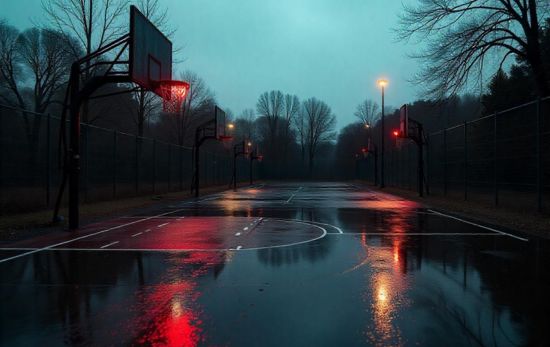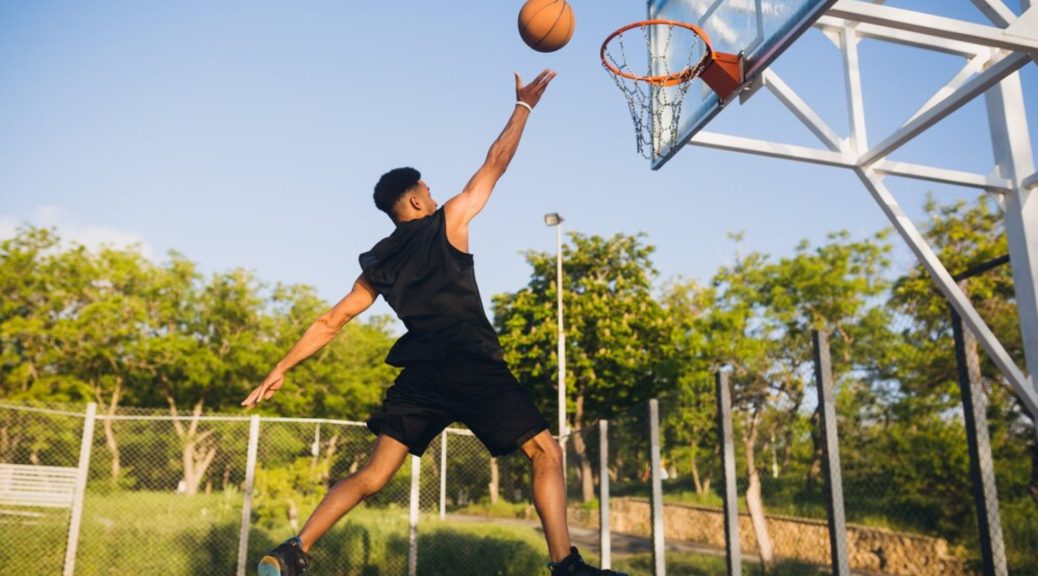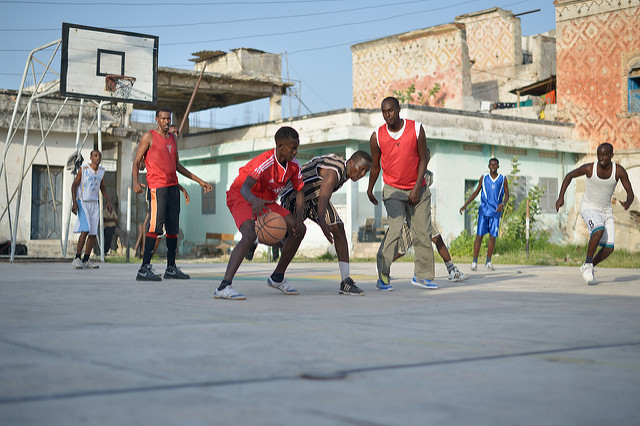Basketball is one of the world’s most popular sports. It is characterized by speed, skill, and teamwork. Fans love it as it is played at various leagues and levels. Among the structural features that characterize a basketball game is its division into quarters. These organize the gameplay and provide natural breaks, adding to the intensity of the game. A standard basketball game is divided into four quarters of equal length. It gives the teams an opportunity to strategize, make adjustments, and maintain a high level of performance during the game.
Standard Format of Basketball Game
Quarters
A regular basketball match is divided into four quarters. This system was developed so there would be a fair amount of playing and a break period so that the players could play at their best and the spectators could watch a game full of thrills and excitement. Among all the professional leagues involved in basketball, the NBA and WNBA have used the four-quarter-based pace of play.
The four quarters of a basketball game serve several purposes. Each quarter allows the coach and players to alter strategies as dictated by the way the game is being played and provides required rest periods for players. These breaks keep fans interested by giving them a rhythm to each portion of the game so that each segment feels new and unpredictable.
Length of Quarters
In professional basketball leagues, such as the NBA, each quarter lasts 12 minutes, and thus a game lasts 48 minutes. This balance is created between the physical demands on the players and the need to keep the game action-packed and viewer-friendly. However, not all leagues follow the same quarter length:
- NBA: 12 minutes per quarter, Total: 48 minutes
- WNBA and International Games (FIBA): 10 minutes per quarter, for a total of 40 minutes
- College basketball is usually divided into quarters; though NCAA games have two halves, school basketball games have quarters that last 8 minutes each.
These quarter lengths affect the tempo and pace of the game. The shorter the quarter, the more furious the style of play, with less time for adjustment. Whether in the league or not, the quarter system introduces pauses that heighten suspense and create room for a team to return from a deficit.
Halftime
After the second quarter of a basketball game, halftime gives a longer time to rest and allows the coaches to assess the first half’s performance and prepare for the remaining part of the game. Halftime lasts for 15 minutes when teams can strategize over the third and fourth quarters. For the audience, it is a time to relish entertainment in the form of performances or activities that are done on the court. It benefits the players but increases the anxiety of the second half as teams return with a new burst of energy and adjusted strategies.
Overtime

When overtime occurs
When the score is tied at the end of the fourth quarter of basketball, the game goes into overtime. Since both teams consider overtime periods equal, each team can eventually end the tie. In most leagues, overtime periods will be 5 minutes in duration. While in many sports, tie games would usually be allowed, in the game of basketball, most instances require a winner thus overtime is an exciting climax on the game structure.
In professional leagues, including the NBA, overtime is continued with additional 5-minute periods until one team takes the lead. This adds a new dimension to how exciting and enduring the game is, as it ensures a winner. Overtime is almost an opportunity for players and fans to see teams extend themselves to their limits.
Overtime Rules
Teams keep all the same rules as normal play; their only restriction is a certain number of available timeouts. The team that is committing fouls has overrunning fourth-quarter fouls. On each overtime, the clock is reset back to 5 minutes; teams are fighting to score as much as they can within that length of time. Overtime rules may be uniform for leagues as a whole, but on the other hand, for the NBA, it does allow a little more leniency on timeouts and the number of fouls compared with international leagues. Overtime in basketball matches is definitely a high-pressure situation wherein every possession counts.
Offseason Basketball Training
Meaning of Offseason Training
To win a basketball game, players must be in top physical and mental shape. Off-season basketball training is important for players who want to take their game to the next level. In the offseason, athletes work on skills and strength that will translate into the regular season. The offseason is also when players work on individual goals and development, allowing them to return as more well-rounded athletes ready to contribute to their team.
The commitment to training in the offseason is what differentiates elite players from average players. It keeps conditioning and skill sets at their peak and keeps players performing well in every basketball match.
Key Components of Offseason Training

Offseason basketball training involves a number of different exercises and routines that can help improve every aspect of an athlete’s game. Some of the main things that should be done include:
- Strength and Conditioning Exercises: To support basketball match exertion, a player needs training to develop core strength, agility, and endurance. Strength training includes weight lifting and resistance workouts. Cardiovascular conditioning helps strengthen endurance, assisting the player in remaining on pace for the entire game.
- Skill Development Drills: Dribbling, passing, shooting, and defensive skills ensure players are technically fit. Offseason basketball coaching emphasizes constant practice in fundamental skills and helps players develop a well-rounded game in all aspects of the game.
- Shooting Practice: Shooting is an art that must be practiced repeatedly for perfect accuracy. Players shoot from different positions, developing their range, precision, and muscle memory. Players can become reliable scorers in a basketball match only through consistent shooting practice.
- Tactical Training: Basketball is as much a mental game as it is physical. Studying game strategies, watching video of games, and familiarizing oneself with opponents will allow the player to see and react to situations even before they occur. This will especially come in handy while playing a basketball match; swift decisions are needed for any strategic play.
This kind of training puts the finishing touches on an off-season basketball training program meant to prepare athletes for whatever a regular-season game has to offer and high-stakes moments.
Advantages of Offseason Basketball Training
Off-season basketball training has far-reaching advantages beyond an athlete’s performance in every basketball game. Some of the advantages are as follows:
- Improving Performance: Off-season training enhances the skills and physical fitness of players, and they can perform effectively in the basketball game. Their improvements can be seen in each and every basketball game, where the trained athletes will be able to outwit and outplay their competitors.
- Injury Prevention: Conditioning and strength training reduce the risk of injury by strengthening the muscles and joints, getting the body ready for all the competitive play.
- Mental Toughness: During the off-season, they build discipline and resilience in order to stay focused and confident during high-pressure situations when playing basketball.
- Increased Confidence: By knowing that they have prepared themselves, players go out to each basketball match more confident, which means good gameplay and on-court leadership.
For a growth-oriented athlete, this should be the best time to acquire new strengths, hone skills, and build up psychological weapons needed in any basketball match.
Conclusion
A basketball game is divided into four quarters. Each quarter gives the players a chance to express themselves, change their strategy, and test their physical limits. Understanding how a basketball game is structured—from the length of the quarter and halftime to overtime rules—helps fans enjoy the game more.
Off-season basketball training is as important to prepare the players for the rigors of regular seasons. The off-season season is an opportunity to develop their physical fitness, skill level, and mental resilience so that they can do their best in each game of basketball. Players and fans alike find it very interesting and thrilling that this game is a sport with the perfect blend of athletic and strategic play.
Any player or fan who would like to raise their game to the next level should have the right gear. That is why Elite Sublimated Basketball Uniforms are perfect for teams who want to have style, performance, and comfort all in one. Fully customized, high-quality basketball uniforms- these uniforms display a good team identity from athletes yet benefit from state-of-the-art technology that provides the ultimate coolness throughout every play of basketball matches.
Customized to the utmost requirement of endurance on rigorous matches, these jerseys provide extreme liberty of movement, hence enabling proper performance every quarter. Whether you’re getting ready for the new season or revamping your team’s overall look, you can explore more about these high-end uniforms, specifically designed to last longer while still showing great style. Want to add that little personal touch or more detail? Order a quote now and learn how our elite sublimated basketball uniform can revolutionize the new look for your team.


